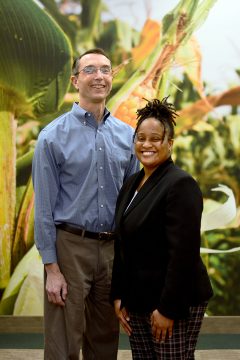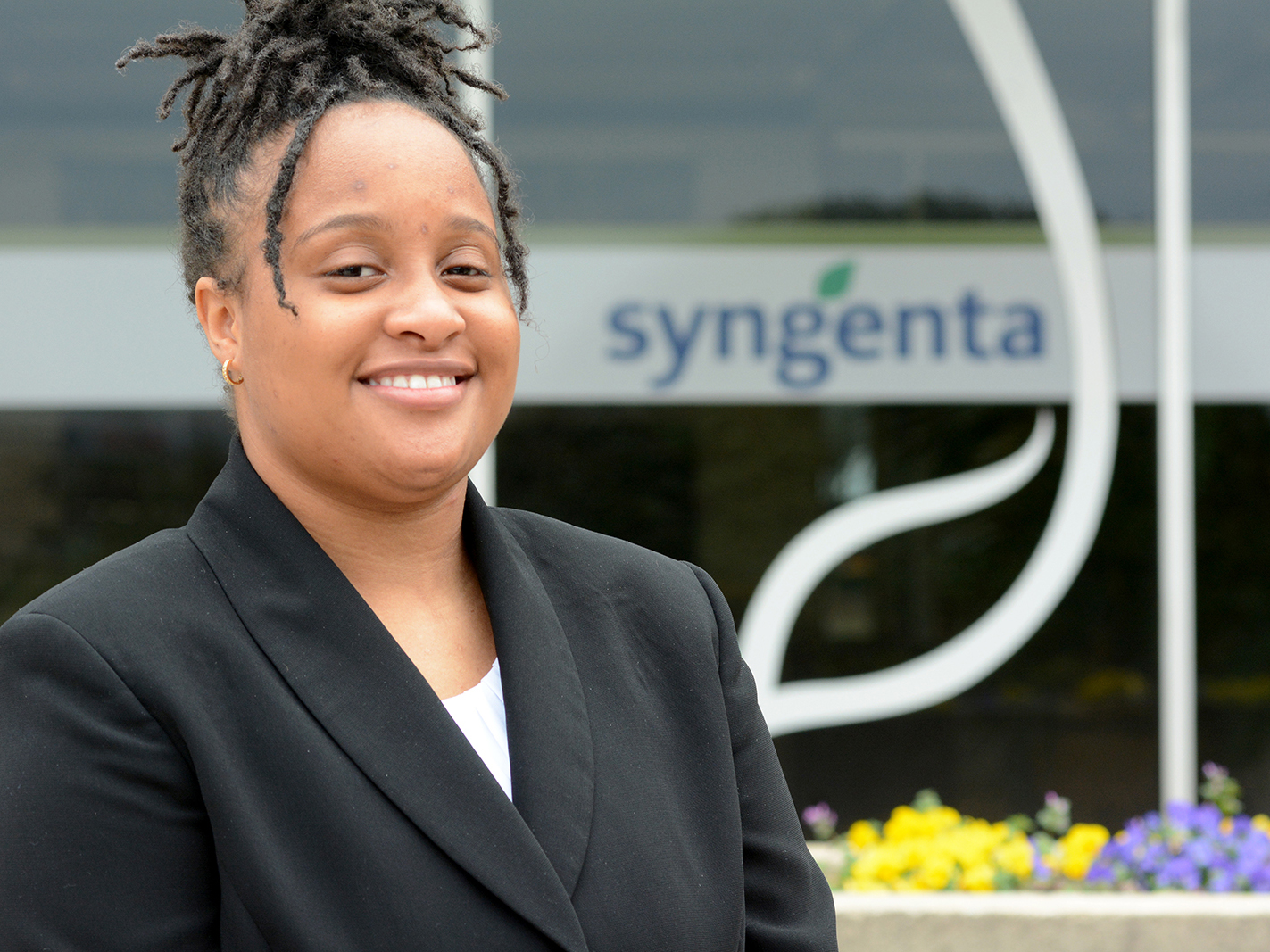An Elon Law residency-in-practice with the crop protection and agriculture technology firm confirmed for Lori Pittman L’22 that corporate law was where she can see herself eventually making a positive impact for her hometown in eastern North Carolina.
Growing up on a family tobacco farm near Rocky Mount, North Carolina, Lori Pittman L’22 often wondered why many small businesses never thrived. They would shutter almost as soon as they’d opened in her working-class community along the Interstate 95 corridor.
Pittman wanted to help solve that problem.
With an eye on corporate law, Pittman completed her Elon Law residency-in-practice this winter in the Greensboro offices of Syngenta, a global agricultural science and technology firm that develops seeds and crop-protection products for an industry important to her family.
She answered questions toward the end of her Syngenta residency and shared how she plans to use her legal education to identify resources and propose solutions to problems faced by small businesses in Halifax County after graduation.
This is the second in a series of conversations with Elon Law students in the Class of 2022 completing their residencies-in-practice throughout the winter and spring trimesters.
***
Tell us a little bit about your daily responsibilities at Syngenta.
I mainly do research. I spend a lot of time on Lexis and Westlaw, and I use Google a lot to look up any secondary research that could be helpful. My work isn’t based on legal cases. That was one of the surprising things to me. And I organize information so that it’s easily readable.
Right now I’m doing agency research. Because they’re a crop protection business, and they do seed protection, my work is on the environment and the Environmental Protection Agency.
Based on your experience, what’s surprised you the most about the practice of law?
Definitely the flexibility and the community. I ask questions to different attorneys in the office every day, especially when I’m stuck, or I don’t have immediate access to my supervisor, regulatory counsel Brian Reeve. You spend hours and hours researching. In law school, we get hypotheticals all the time, and we may do research for a couple of days. I’ve realized this can take place over a period of weeks or even months. You can be researching the client’s issues for a while before you can give them an answer!

Which of your traits benefited you the most in your approach to this residency?
My perseverance and determination. Going from law school to actually being in practice, I realized these aren’t hypotheticals. I had to provide credible information because it was going to help someone. I didn’t know who, but it would help address someone’s problem. Getting into my residency, I wasn’t as confident as I’d wanted to be because I’d never been in practice. When I submitted my first draft, I was told it was great, and I realized I actually knew what I was doing, and law school had taught me well. It gave me the confidence I needed.
How has your time with Syngenta shaped your plans for after graduation?
I enjoy being in the background, conducting legal research and producing memos for other people. I know I don’t want to go into litigation. I’d rather do in-house or corporate law where I produce information for other attorneys or for client meetings. This residency gave me the experience I needed to know what I do like and what I do not like.
For me, my first project at Syngenta was a case of first impression. Actually researching real-life issues and seeing there are gaps and holes in public policy and the law and what needs to be done, and thinking about a solution, it made me feel productive and valuable. I enjoy that feeling.
And how do you see your Syngenta residency benefiting your home community in eastern North Carolina?
I’ve learned of several different resources. Being a part of the company and watching the attorneys and what they research to help their clients, who often are farmers, inspires me. I want that to be my family one day. Watching how they handle cases is helpful, especially when it comes to crop protection and the seeds business.
For me, I haven’t had a lot of opportunities to learn as a farmer. You learn a lot about business here at law school, but you don’t learn a lot about farming. Doing research at Syngenta has taught me a lot about the different products that can help farmers.
Share one “quick tip” for current and prospective students as they prepare for their own Elon Law residencies or, more broadly, law school in general.
Go into new experiences open-minded and optimistic. It’s so important to try different things to know what you like. I really enjoy business law. I took Business Associations and was great at it. Going into my residency with a supervisor who is regulatory counsel, I could now see that not only do I like business, but I like policymaking and research. I really appreciated the opportunity to go into Syngenta because it exposed me to different areas of law.
About the Residency-in-Practice Program
Elon Law’s highly experiential 2.5-year curriculum requires every student to complete a full-time, course-connected residency-in-practice during their second year of study. Through faculty-directed residencies, students cultivate essential skills, values and judgment to help them excel as attorneys and deepen their understanding of various practice areas, while enabling attorneys to convey wisdom about the legal profession.
Students work 32-36 hours a week over a 10-week trimester with a judge or attorney supervisor and a faculty member to create and implement a learning plan that develops an increased proficiency in professional legal skills and in an area of law practice.



